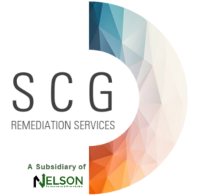
Emergency Response and Remediation at Beach Site
Train Derailment at Beach Site in Small Community
Client: Unspecified
Location: Northwestern Ontario
Industry: Transportation
Project Overview:
Following a train derailment in Northwestern Ontario, SCG Remediation Services was called to action to address the release of Light Non-Aqueous Phase Liquid (LNAPL) into the subsurface near a beach site. The incident required immediate delineation and recovery efforts to understand plume dynamics and effectively remediate the site. The aftermath of the spill included periodic discoloration of sand and sediment, along with a biogenic sheen observed at the beach.
Key Challenges:
- Hydrocarbon Plume Delineation: Accurately mapping the extent and dynamics of the hydrocarbon plume was crucial for effective remediation.
- Complex Remediation Needs: The project demanded a comprehensive approach, including innovative remediation technologies and continuous site management.
Technical Execution: SCG executed a thorough remediation program, which included:
- MiHPT Program: Conducted a Membrane Interface Probe with Hydraulic Profiling Tool (MiHPT) program to delineate the upgradient hydrocarbon plume. This involved delivering 30 MiHPT points over a five-day period.
- Conceptual Site Model: Developed and reported a new conceptual site model of plume dynamics to stakeholders.
- Bio-Sparge Pilot Test: Collaborated with a consultant to design a bio-sparge pilot test, followed by the design and installation of conveyance piping based on the consultant’s specifications.
- Full-Scale Bio-Sparge System: Designed, installed, and commissioned a full-scale bio-sparge system to remediate the site.
- Ongoing Support: Provided periodic site maintenance, regular visits, and remote technical assistance to ensure continuous and effective operation of the remediation system.
Outcome: The comprehensive remediation approach effectively addressed the hydrocarbon contamination, mitigating the environmental impact of the spill and restoring the beach site. The collaborative effort and use of advanced remediation technologies demonstrated SCG’s ability to handle emergency response scenarios efficiently.
Conclusion: This emergency response project showcases SCG Remediation Services’ expertise in managing and executing full-cycle remediation programs for complex environmental challenges. The successful implementation of the bio-sparge system and continuous support services underscore SCG’s commitment to delivering effective, sustainable solutions in the transportation industry.
